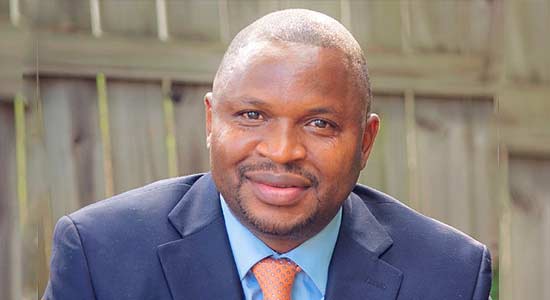Expatriate Employment Levy And Anti-People Policies

By Kenneth Okonkwo
An expatriate is somebody who left his country of origin in order to reside in another country. He is a person who temporarily resides outside his country of citizenship. An expatriate worker is a person who works in another country outside his country of origin. Recently, the present government in Nigeria issued a directive that companies in Nigeria who employed the services of expatriates in their companies will pay a levy of $10,000.00 (Ten thousand dollars, approximately N18,000,000.00 (Eighteen million naira at an exchange rate of 1,800 per a dollar) for ordinary staff workers and $15,000.00 (Fifteen thousand dollars, approximately N27m) for the directorate cadre.
Since the inception of the All Progressives Congress (APC) administration in 2015, more than 200 foreign companies have left Nigeria, the latest including, but not limited to GSK pharmaceutical company and P & G etc. Within last year, 2023 alone, according to the Manufacturers Association of Nigeria Chairman, Segun Ajayi-Kadiri, 335 manufacturing companies were distressed while 767 were shut down owing to unfriendly investment climate. This is more than 1,000 companies that failed, or are failing, within a year with the attendant consequences of increased unemployment, hunger, insecurity, lower income to the government etc. There was 56% decline in capacity utilisation in the companies; interest rate is effectively above 30 per cent; foreign exchange to import raw materials and production machine is scarce and too costly; inventory of unsold finished products has increased to N350 billion and the real growth dropped to 2.4 per cent.
It’s becoming increasingly obvious that Nigeria may not recover economically because this government has no clue on how to recover the economy. This government acts on impulse and doesn’t think through its policies before dishing them out. Can one imagine that the Manufacturers Association of Nigeria (MAN) wasn’t consulted and carried along before this uninformed policy was dished out? It was obvious that the thought process of the highest officer of this government was impaired during campaign which compelled him not to participate in any debate or conference to enlighten Nigerians on what he intended to do for them. The only policy he so loudly pronounced was “emilokan”, it’s my turn to be president. In such circumstance, the only saving grace, after the Independent National Electoral Commission (INEC) declared him President, through technical glitch, would have been to have men around him who have knowledge with character as special advisers and assistants.
This obviously is not happening considering the list of anti-people policies dished out since inauguration of the regime, and the absolute deceit and incompetence with which those policies are implemented. Fuel subsidy is gone means fuel subsidy is paid today more than before. Dual foreign exchange market is gone means no single exchange market is established. Oronsaye report to be implemented means that the government should be administered with the largest bureaucracy made up of 48 Ministers, most of whom are redundant, and placing children without portfolio above appointed Ministers in the order of protocol. Then the latest expatriate employment levy (EEL) which will further destroy the economy and increase our economic woes.
The EEL has exposed this government as a government that serves money, not the people. Lagos politicians of the emilokan brand enjoy monetizing everything for their benefit. Whenever this government wants to make any policy, what they are fixated at is how much money they will make for themselves not the welfare of the people. The EEL is intended to make money for the government at the expense of the people just like the removal of fuel subsidy. Firstly, incorporated businesses do not suffer consequences of increased cost of production, their consumers do. Whenever, their cost increases, they bear the impact, but the consumers bear the incidence. This means that the cost is transferred to the consumers as the selling price of the product. In a distressed economy, which requires the government to provide incentives for businesses to thrive, this government is providing disincentive for businesses to die. Whenever the companies cannot transfer the cost of production to the consumers or whenever the consumers cannot afford the increased price as a result of increased cost of production, the companies die as they will not be able to make profit and meet up with their obligations. With increased salaries for their workers, increased transportation cost, increased price of fuel, gas and diesel, increased insecurity, reduced electricity supply, excessive devaluation of the naira, the companies are already gasping for breath. Increased expatriate employment levy will send most of them to their early graves, as any increased cost will not be sustainable. Little wonder MAN warned that “the EEL would certainly ruin the confidence President Bola Ahmed Tinubu was striving to build among domestic and foreign investors”.
In Nigeria today, most companies, both domestic and foreign, depend on expatriates to carry out some of their functions. Government is even the most guilty here. Most of our roads and buildings are constructed by expatriates. Julius Berger is from Germany. It’s still the largest construction company in Nigeria today. The railway is dominated by the Chinese, even the mining industry is dominated by expatriates. They are everywhere: in the pharmaceutical, hospitality, currency trading, transportation, machinery, electronic, real estate, and so on. There’s no aspect of our economy that you will not find avalanche of expatriates. Imposing levy on the use of expatriates in Nigeria today is a death sentence to most of the companies because there are some expertise which Nigerians have not acquired in all these areas that will make the companies to die if those expatriates depart. Also the transfer of technology which ensue whenever the expatriates interact with Nigerians will also take a flight with the departure of the expatriates. The Ajaokuta Steel Mill, even though 98% complete, remained unoperational till date owing to the departure of the expatriates that established the Mill according to the model of the plant in their own country.
The argument that the levy is meant to discourage foreign companies from employing expatriates for their jobs and employ Nigerians instead, is one of the deceits of this government meant to becloud their kleptomaniac tendency. The truth is that the opposite is the case with regards to the policy. The original policy that tended to increase participation of Nigerians and Nigerian products in companies is the expatriate quota policy and local content policy which compel companies to engage certain number of Nigerians in their company and increasingly utilise made in Nigeria raw materials in the manufacturing of their products. This policy will penalise any company that exceeds its expatriate quota. This is pro people policy as every company is expected to have some minimum number of Nigerians in their companies, no matter how rich they are.
On the other hand, the expatriate employment levy does not care about Nigerians once the companies can afford the dollars to give the government. This means that any company that wants to employ ten directors and can afford to pay $150,000.00, the company is free to use expatriates for all the positions. If the company is enjoying monopoly in its services, it will just transfer the cost of what it’s paying to government to the people of Nigeria to bear. So the price of the goods and services will increase and no Nigerian is employed for the job. Nigerian companies also use expatriates. This means that Nigerian companies are compelled to pay the price of using expatriates to the government even when they are struggling to survive. This will make their goods very costly and inhibit the possibility of their exporting the products. They cannot compete with the indigenous foreign companies which have their parent companies abroad in the reduction of the cost of production because they don’t have access to foreign exchange that will help them pay this levy.
This government has spent about N4b purportedly travelling abroad to look for investors, yet making policies that duscourage investors from coming into Nigeria. This is a bloody waste of tax payers money and the government should stop wasting our scarce foreign exchange in search of a non-existent direct foreign investment. BINANCE was purportedly penalised for purported foreign exchange breaches and it folded up every transaction in Nigeria. It will be Nigerians that will now seek for their services at a higher cost while the government will earn nothing from such exit.
This government is also not knowledgeable enough to understand that this EEL, being a sort of tax, ought to be enacted by the National Assembly to make it a law. The EEL may have contradicted some provisions of some international treaties which they have accented to in the past like the African Continental Free Trade Area (AfCFTA) agreement, which guarantees free movement of skilled labour within the African continent. Expatriate doesn’t mean you must come from Britain, America or Europe, it means that you will come from a foreign country. You may come from Benin Republic or Cameroon and this EEL runs foul of the treaty as it will amount to inhibition of movement of skilled professionals.
The chicken Nigerians bought for N1,500 per kilo in early 2023 before Tinubu assumed power is now N6,500.00 within 9 months of his regime. Eggs are fast disappearing from the menu, and garri goes gold. There is hunger in the land and last thing this government should do is to induce higher price of goods and services initiated by higher cost of production. If this EEL is not removed, more companies will die, or leave Nigeria, or become distressed and the people will be punished more with increased prices. This is being anti-people to the core.



